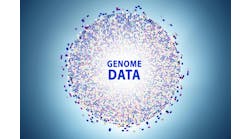Louisiana-based Ochsner Health System and precision healthcare company Color have developed a pilot program that integrates clinical genomics into standard care in order to proactively identify patients who are at higher risk for certain hereditary cancers and heart disease.
Developed by Ochsner’s innovation lab, innovationOchsner (iO), the health system’s program leverages Color’s combination of medical grade genetics, clinical services and patient engagement.
Ochsner’s program will screen for three conditions, based on the CDC’s determination that early detection and intervention could significantly reduce the risk of disease and the availability of evidence-based guidelines with well-established, effective actions providers and patients can take to reduce risk.
• Hereditary Breast and Ovarian Cancer Syndrome (HBOC) due to mutations in BRCA1 and BRCA2 genes;
• Lynch Syndrome associated with increased risk in colorectal, endometrial, ovarian and other cancers; and
• Familial Hypercholesterolemia (FH) which increases the risk for heart disease or stroke.
Ochsner says that different from direct-to-consumer genetic testing, Color uses clinical grade genetic testing technology while also providing support to individuals and providers with genetic counseling services.
In the pilot program, selected patients receive a testing kit and provide a DNA sample from home. Participants then have access to Color’s services and tools for in-depth health discussions and easier family sharing. Ochsner clinical teams are prepared to further discuss care plans and help patients navigate next steps within the healthcare system.
Genetic testing results are stored in the patient’s Epic EHR, giving patients and their providers information to improve healthcare collaboration and treatment plans. Ochsner has developed clinical decision support tools and a provider education program for both primary care and specialty providers to integrate into clinical practice.
“Genetic screening can make a meaningful difference to patients through early detection and screening. Most consumers have access to home genetic screening tests but may not have the tools, resources and collaboration needed to take action should they receive questionable results,” said Richard Milani, M.D., Chief Clinical Transformation Officer, Ochsner Health System, and Medical Director of iO, in a statement. “We know there are many factors that influence health, and genetic insights provide an additional data point to allow us to develop and deliver a more personalized approach in partnership with our patients. Integrating this information into the patient’s electronic health record so your doctor can review the results and discuss proactive treatment recommendations is yet another example of how we are reengineering care, informing smarter decisions by healthcare providers and empowering patients to become more involved in their health.”

